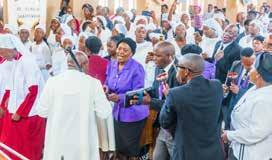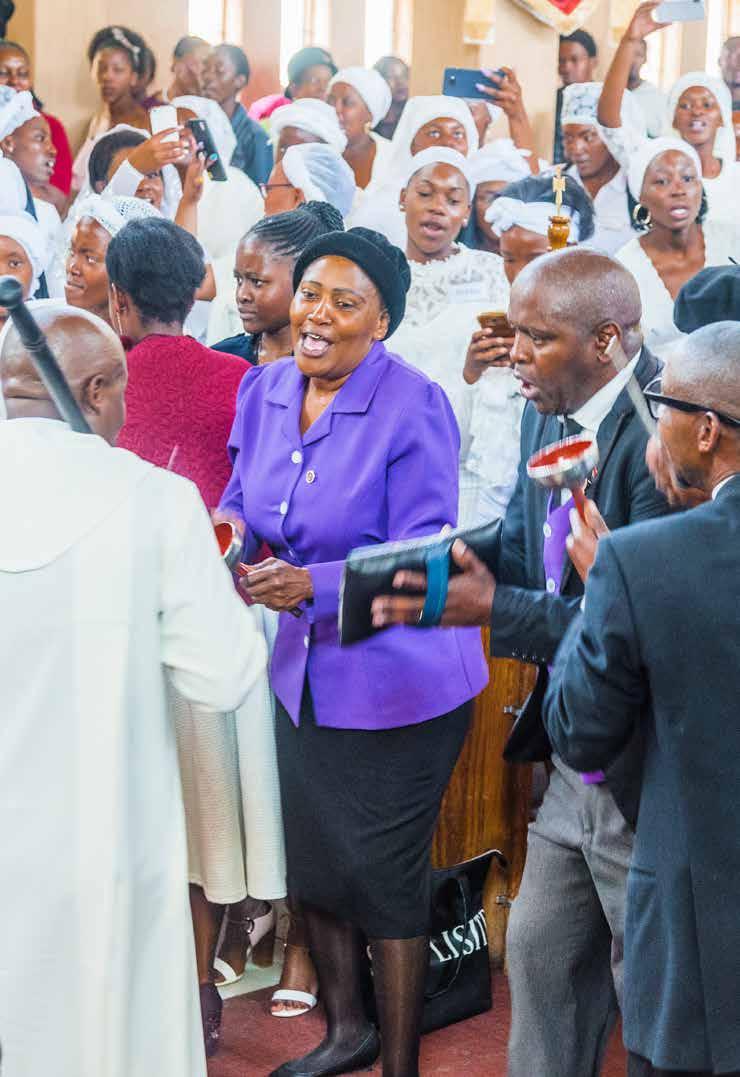
2 minute read
Journey With Us in South Africa
from USPG Koinonia Issue 4 1/2021
by USPG
By The Rev’d Gerry Lynch, Devizes
I first went to South Africa in 2011 through what is now USPG’s Journey with Us programme. My placement in the Diocese of Cape Town taught me I was a valued person. I returned through USPG’s Expanding Horizons programme, but this time ‘up north’ in the Diocese of Christ the King. In and around Johannesburg, a country’s and perhaps a continent’s future is being forged. Christ the King covers none of the city’s famous landmarks in its glitzy Northern suburbs or the emotional heartland of Soweto. Instead, this is a diocese of work-a-day suburbs, townships and industrial towns, with a kaleidoscopic collection of races, nationalities and income levels. In the hilltop suburbs around Christ the King Church, Mondeor, whites, blacks, Indians and those of mixed race live together in roughly equal numbers and considerable comfort; down the hill in Rosettenville and Turffontein, a similarly mixed population battles poverty and violent crime, with much xenophobia directed by some South Africans towards a large population from other African countries.
An act of worship
The Diocese spreads southwards to the industrial Vaal region, where tightly-knit communities give a different ‘small town’ feel, reminiscent of the shift in atmosphere one gets by going from, say, Manchester to Bolton. Here, at St Cyprian’s in Sharpeville, the spiritual heart of a diocese without a cathedral beats, just a few hundred metres from the site of the 1960 police massacre that aroused the world’s conscience against the horrors of apartheid. South African Anglicanism impresses in its capacity to mix Catholic, Evangelical, and Liberal elements into a distinctive spiritual personality. The Sunday morning thurifer might lead an Alpha course on Wednesday night before calling a local purohit to discuss a mixed Hindu-Christian marriage. This is a church of many tongues too - at a Sunday Eucharist in Christ the Saviour, Lenasia, a historically Indian congregation with growing numbers of black and mixed race worshippers, the prayer of consecration switched between seven languages, from Afrikaans to Zulu, in perhaps five minutes. At a high school Eucharist, to include the many Congolese, Mozambican, and Chinese pupils, prayers in French, Portuguese, and Mandarin were interspersed among English, Sesotho, and Xhosa. This living out of Pentecost is a more pragmatic gift of the Holy Spirit than the type favoured in the region’s many glitzy mega-churches. The Diocese doesn’t lack problems; with no endowments, finances are tight. Just 13 stipendiary priests struggle to serve a population of over a million, many nominally Anglican but essentially de-churched. The fields are ripe for harvest, but the labourers are few. Divisions over homosexuality are as intense as they are here, with increasingly strident demands for change among the young often confronting angry bewilderment from older Anglicans. This is Africa at its most globalised, and while in some ways our contexts are profoundly different, in others there is tremendous overlap. Not least, since my return, we have shared the burden of Covid-19. My new friendships have continued over WhatsApp and Facebook, and of course, through prayer. USPG is about partnership in the Gospel, and partnership is about sharing joys and burdens as equals. It was a privilege to be allowed to share the world of my South African colleagues, whom I found to be humorous, pragmatic, faithful, and wise. ■











